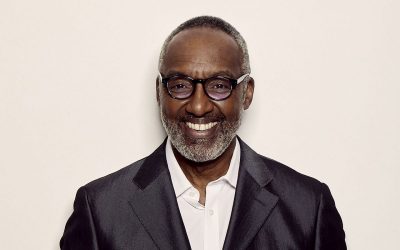Workout recovery tips

We’ve all hit the gym, given it our all, and then been almost completely bed-bound the next day. It’s tough to remain motivated enduring aches and pains, without an already iron will. I’ve started the gym countless times, and I always end up quitting after a week or so.
I know what my problem is, I push myself too hard and my body aches for days afterwards. After doing some research though, I figured how to reduce those aches and pains as much as possible. Here are my Top Tips to Speed up Recovery after a Workout.
Stay hydrated
Drinking plenty of water helps to keep both your brain and muscles operating at peak efficiency. The majority of people are dehydrated and don’t even know it. I used to be one of them, only drinking when I’m thirsty and that’s it.
Drinking water only when you’re thirsty is like waiting for your phone battery to completely run out before you charge it. You simply shouldn’t do it. Instead, it’s best to have a bottle of water with you throughout the day and...
Continue Reading
Subscribe to one of our subscription packages
to get digital access to our articles.
Unlimited digital access.
Already a subscriber? Login
A red light to the world

A personal take by A Rocha UK’s CEO, Andy Atkins, who spent his childhood in far north Queensland and returned at the height of last year’s bushfires.
I woke feeling refreshed. From the pleasant smoky smell my first thought was that my wife was cooking bacon and eggs for our breakfast. Then I realised she was sound asleep beside me, it was pitch black outside and, according to my phone, 2 am in the morning. It was November 19. We had arrived in Sydney from the UK about 18 hours earlier and my body clock was upside down. But what on earth was that smell?
I stood on the roof terrace of our AirBnB apartment and looked about; but instead of lights twinkling around the iconic harbour, I could see – nothing. We seemed to be enveloped in a thick fog reminiscent of a wet British winter; yet this was summer in Australia – not at all how I remembered it from childhood. Then the penny dropped. It wasn’t fog but smoke. The smell was not wood-smoked bacon but the actual forests of Australia g...
Continue Reading
Subscribe to one of our subscription packages
to get digital access to our articles.
Unlimited digital access.
Already a subscriber? Login
Competent leadership

How competent are Cabinet members, to do the jobs they have been given to do?
I’ll never forget my first few visits to Parliament. Of course it is an impressive building, but what impacted me most was how ordinary everyone was. The bubbles of my presumptions were pricked as I noted that parliamentarians were not operating on a higher intellectual or spiritual plane than mere mortals like me. Don’t get me wrong – I was also impressed with the astounding levels of sacrifice and passion I encountered, but I became convinced that many of the leaders I had rubbed shoulders with within medicine, NGOs or the church would excel in this environment. I reckoned they had just as high (if not higher!) levels of strategic thought, integrity and competence. In fact I became convinced of the need for folks like them to get involved to improve the standard of leadership in our country.
Current events are causing people to re-examine just how competent some of our elected leaders really are. The handling of Brexit, Covid, and exam results mean we are asking questions about basic management, communication, and strategic planning skills, rather than policies.
In the last few years there have been many talented and experienced MPs in the House of Commons. But sadly many of them have not served on the front benches of either the red or blue team. When promotion only follows adherence to a tribal faction or leader, rather than skills, the first casualty can be the level of competence of those in leadership. Two years ago, embarrassed Labour supporters often watched inept shadow cabinet interviews from behind their sofas, while now even some of the most loyal Conservative supporters struggle to label the present Government’s handling of contract tendering, Covid testing or Brexit as competent, or to defend it.
So could you help improve things? Could you bring your skills to the table to serve the common good in politics? Why not find out? We all feel pretty competent in our armchairs.
By Andy Flannagan
Off the boards

David Robinson is a prolific playwright and actor, and has performed around the country for over thirty years. Locked out of the theatre like every other performer by the virus, he has been revising, creating and writing, and is currently working on a play based on the life of famous comedian, Ken Dodd.
Q: How has the epidemic hit people like you?
I have never in my thirty years of performing experienced the uncertainty and fear that the creative arts are feeling right now. My last performance was in The Screwtape Letters on Saturday 14 March. My next performance is unknown. So, though it is encouraging and refreshing to see pubs and restaurants opening their doors, it remains frustrating not be able to do what I have always enjoyed doing the most: telling stories through live theatre.
Q: But you have not been idle?
I have been running a series of Facebook interviews via the ever-present Zoom called Tea for Two for Ten: ten-minute interviews over a lovely cup of tea and cus...
Continue Reading
Subscribe to one of our subscription packages
to get digital access to our articles.
Unlimited digital access.
Already a subscriber? Login
Military transition

As an officer in the British Army, Eric Warren served in Afghanistan, the Balkans and the Middle East, before retiring as a major after a career spanning 16 years. He now works in the City, and serves as chair of a network which helps veterans transition to civilian life. Here, Eric shares his own experience of establishing a new career outside the military, along with his insight into making the transition as seamless and successful as possible.
Q: Why did you join the Army?
When I was at school, I played a lot of rugby and swam for the county. I was super active, so when the careers people lined me up for office jobs, I was a bit dismayed. I’d done an internship at an accountancy firm, and it was so boring – I knew I didn’t want to do that. Then a careers officer, who was ex-military, said: ‘Have you thought about joining the military, because they’re active and outside all the time?’ So I went to an open day and I met other people who were just like me, who enjoyed the outside...
Continue Reading
Subscribe to one of our subscription packages
to get digital access to our articles.
Unlimited digital access.
Already a subscriber? Login
Ewan McGregor's values

Ewan McGregor talks to Sorted about his belief system, his approach to playing the dual roles of Jesus and Satan, and how his work as a UNICEF ambassador is helping children to survive.
Let’s begin with a sweeping generalisation: successful actors, more so than most other professions, are blessed with broadened minds. They travel the world, inhabiting characters for weeks, months and in some cases years, gaining new perspectives as they invest themselves into foreign cultures, tackling issues and playing out scenarios so we can bear witness to their experiences for our entertainment.
Effectively these people are not just financially privileged but are enriched with experience – and, dare we say, wisdom – most of us can only dream of. They give us glimpses into worlds beyond; they are, perhaps, the world’s best ambassadors for adventure.
Ewan the humanitarian
And none more so than Scottish actor and humanitarian Ewan McGregor OBE. His adventurous, ambitious spirit is infecti...
Continue Reading
Subscribe to one of our subscription packages
to get digital access to our articles.
Unlimited digital access.
Already a subscriber? Login
It’s Jess business

Somehow it seemed appropriate for Jesse Lingard to score the last goal of Manchester United’s 2019-20 season and for it to be the goal that confirmed their win over Leicester City, the achievement of a third place finish – the best since the days of Sir Alex Ferguson – and also confirmed their place in this season’s UEFA Champions League. It was a happy ending for a frustrating season for Lingard. The arrival of Bruno Fernandes in January and the emergence of Mason Greenwood as a first team starter had seen him slip down the pecking order.
While Jesse has been a Manchester United player since he was in school, it was not until he was 23 that he made his league debut, having had loan spells at Leicester City, Birmingham City, Brighton and Hove Albion and Derby County. In 2010-11, he was part of the Manchester United team which won the FA Youth Cup, playing alongside Paul Pogba, in his first spell with the club. Lingard then made 11 appearances for England at under 21 level. Despite t...
Continue Reading
Subscribe to one of our subscription packages
to get digital access to our articles.
Unlimited digital access.
Already a subscriber? Login
Black in blue?

With our news bulletins so often being dominated by street violence, one person you often hear being interviewed as an expert is Leroy Logan, who now runs his own security consultancy. But for thirty years, he was a policeman at the heart of the Met – described at the Macpherson Inquiry as ‘institutionally racist’ – an inquiry that he took part in. A committed Christian, he was also one of the founders of the Black Police Association, and his book about his life, Closing Ranks – my life as a Cop, is out now. His story is also the focus of an episode of Steve McQueen’s Small Axe series on the BBC, and film star John Boyega plays him. His career was distinguished, and he worked long and hard to change race relations on the streets of London, being made an MBE in 2000. But it was never plain sailing, not even from the beginning…
Early days
When Leroy Logan joined the Met in the early 1980s, he did so despite the misgivings of his own family and indeed his own heart. As a black man l...
Continue Reading
Subscribe to one of our subscription packages
to get digital access to our articles.
Unlimited digital access.
Already a subscriber? Login
World Cup winner

Phil Vickery played rugby for England more than seventy times yet the reason for this feature and for most of the interviews he does is that he played in one particular game – the 2003 World Cup Final. He is one of that select group of England rugby players who are the only ones who can call themselves World Cup winners. Vickery has lived a full and successful life but people still want to take him back to one day 17 years ago.
Building a team
In June 1998 England were defeated 76-0 by Australia in Brisbane, 64-22 and 40-10 by New Zealand and 18-0 by South Africa. The idea that five years later England would win the World Cup seemed laughable. How on earth did the transition occur? ‘It’s a combination of a lot of things’ suggests Vickery. ‘1998 was Clive Woodward’s first tour as England coach. It was a very short tour: one test against Australia, two in New Zealand and finally South Africa. It was called the tour for from hell for a reason. It was blooming tough. It was my first ...
Continue Reading
Subscribe to one of our subscription packages
to get digital access to our articles.
Unlimited digital access.
Already a subscriber? Login
Hero’s battle

Former Welsh Guard Simon Weston is a veteran of the Falklands War. He suffered serious burns to almost 50% of his body when his ship was bombed. Incredibly, he has since become friends with Carlos Cachon, the Argentine pilot responsible for the bombing. This is the second half of a two-part interview in which Simon speaks exclusively to Sorted magazine.
Q: You seem like you’re in a really good place now, but you have had a lot of operations, you suffered from PTSD and there was a time when you were drinking heavily and feeling suicidal. How did you get through that?
There were lots of different things – it was little and big things combined. For instance, people always come into my life at the right time, just when I need it. I’m a very positive person, I always have been, and I’ve always found that the more positive you are, the more people with positivity gravitate to you – and the more receptive they are to your thought processes, desires, and what you’re trying to achieve.
...
Continue Reading
Subscribe to one of our subscription packages
to get digital access to our articles.
Unlimited digital access.
Already a subscriber? Login











